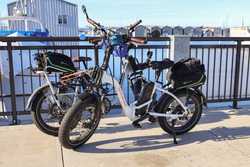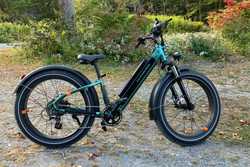- Battery size: Specialized SL1-320wh
- Battery capacity: 320wh
- Wheel size: 29 inches
- Frame material: Carbon
- Motor: Specialized SL 1.1 w/50Nm
- Drive system: SRAM Eagle XO1
- Price on publish: $10,000
Best Electric Mountain Bikes for Trails and Treks
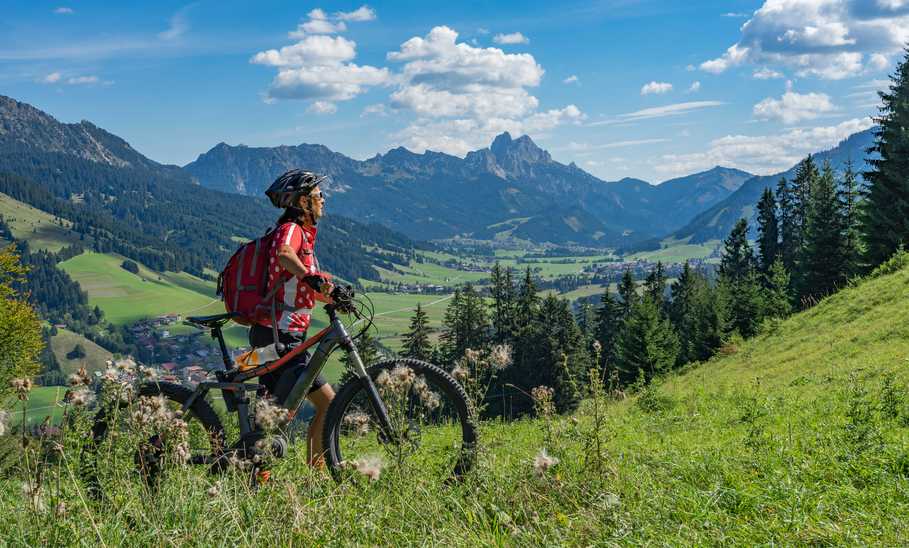
Our evaluations and opinions are not influenced by our advertising relationships, but we may earn a commission from our partners’ links. This content is created by TIME Stamped, under TIME’s direction and produced in accordance with TIME’s editorial guidelines and overseen by TIME’s editorial staff. Learn more about it.
If you live in an urban area, you’ve likely noticed a plethora of electric bikes on the street. They're especially popular with commuters, who use them to go to and from work and run errands quicker and more efficiently than when using automobiles or public transportation. But you can also use an ebike for going further afield—much further.
Electric mountain bikes are a revelation for many avid mountain bikers, allowing them to go faster and longer, climb steep mountains, and navigate trickier trails than they would’ve been able to on a traditional bike. They also encourage more people who might otherwise not consider themselves strong enough to do so, to give mountain biking a try.
Like most everything these days, there are dozens of options available, so figuring out which is the best electric mountain bike for you can be both overwhelming and confusing. Plus, a quality model doesn’t come cheap, with an entry level bike coming in around $5,000. Since bikes are one of those things that you really need to try out in person, plan to visit your local bike shop where you’ll be able to test ride multiple bikes before committing to a specific one–this is one instance where it’s vital to be choosy.
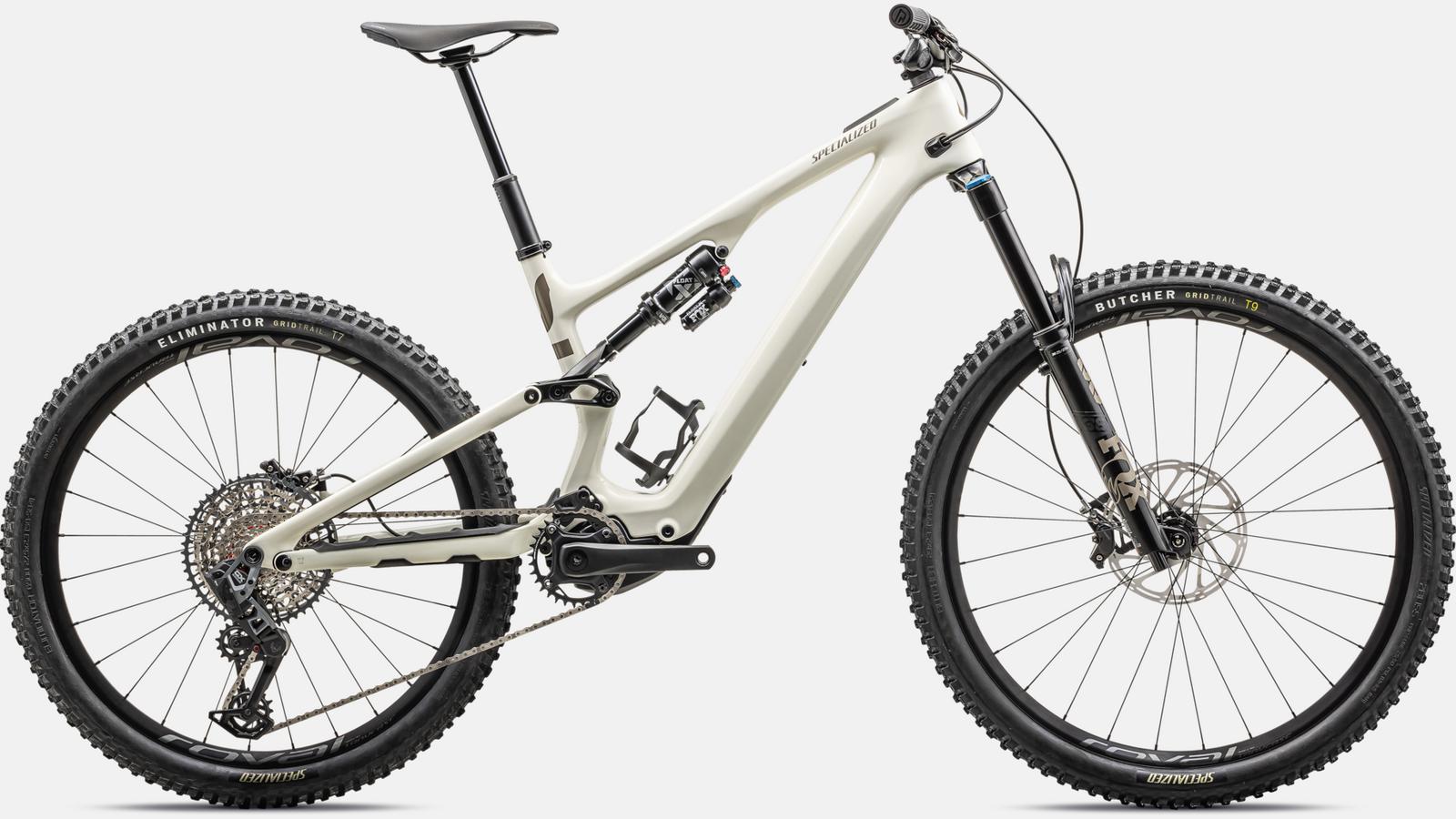
I’ve long been a Specialized loyalist. While the bikes I ride most often are completely customized builds on Dean Titanium frames (also custom), if I ride an “off the floor” model, my first choice is a Specialized. I liked the S-Works Turbo Levo SL because it looks like the Stumpjumper (Specialized’s non-electric mountain bike) and, once I got it off the road and onto the trail, it felt like one, too. It features a lightweight SL 1.1 motor with a responsive torque curve that melds with your own pedaling cadence and 150mm of front and rear suspension. At around 38 pounds, it’s also one of the lighter e-MTBs available. This means that if your battery does run out, you can still manage to pedal without the assistance of the motor. The Levo SL is not a full powered mountain bike, but rather a mid-power one. If you’re looking for full power, check out the Levo included below.
An e-MTB for those who want their electric power in a package that feels closer to a traditional mountain bike.

Chock full of high-end components, including a Shimano XT group set, RockShox Ultimate fork, and a Shimano E8010 motor battery, the Vitus E-Sommet is one of the best values you can get in an electric mountain bike. Featuring aggressive geometry, 160mm of rear travel and 170mm of front, it's designed for enduro rides. The Shimano Steps motor provides three power modes including eco, trail, and boost with a single battery charge lasting for about 4,000 feet of ascent on turbo. All of this comes at a very reasonable price of $7,590.
An excellent value for the money, the Vitus E-Sommet features high end components on a frame with aggressive geometry.
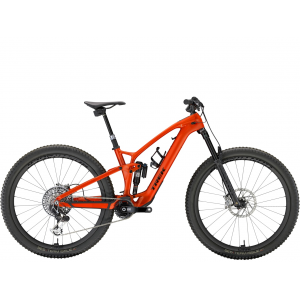
With a $14,000 price tag, the Trek Fuel Exe does not come cheap, but it is equipped with all sorts of cutting-edge technology like a quiet and compact TQ motor, integrated LED display, RockShox suspension with AirWiz, and a wireless SRAM XX AXS transmission. My favorite things about this bike are how quiet it is and how sleek it looks. As you can probably tell, I’m not particularly inclined to bikes that look like they’re electric bikes, but rather gravitate towards those that give the impression (both in look and feel) of riding a non-electric version of the same. Trek takes this idea to the next level with a bike where the motor performed in such a way that I forgot it was even there (that is, until I realized how much faster I was moving than normal).
An expensive, high-end e-MTB with the latest bells, whistles, and technology in an incredibly sleek and stealthy package.
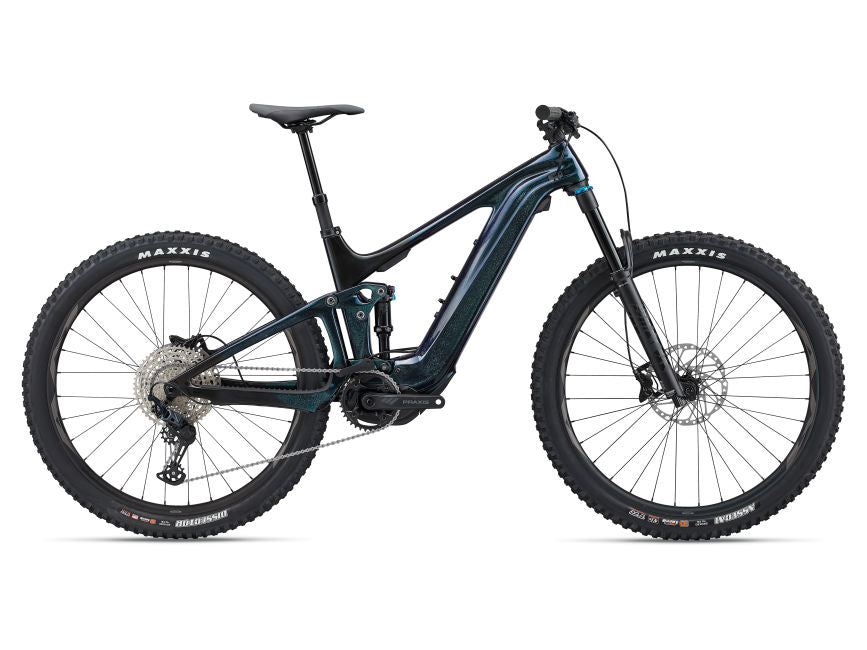
The Giant Trance has a cool flip chip feature, so you can easily change both your head tube and seat tube angles which, along with an adjustable bottom bracket height, allows you to dial in your preferred riding position. While Giant bikes tend to not be as showy as Specialized or Trek versions, they’re consistently dependable, offering solid performance at a lower price point that works well for a lot of riders. The Trance is well suited to cross country and trails, and provides an excellent e-MTB option without an excessively expensive price tag. It’s often mentioned in the online eMTB forums I frequent as a quality all around, relatively affordable bike.
An excellent choice for those looking for a well-rounded e-MTB geared more for cross country and trail riding.
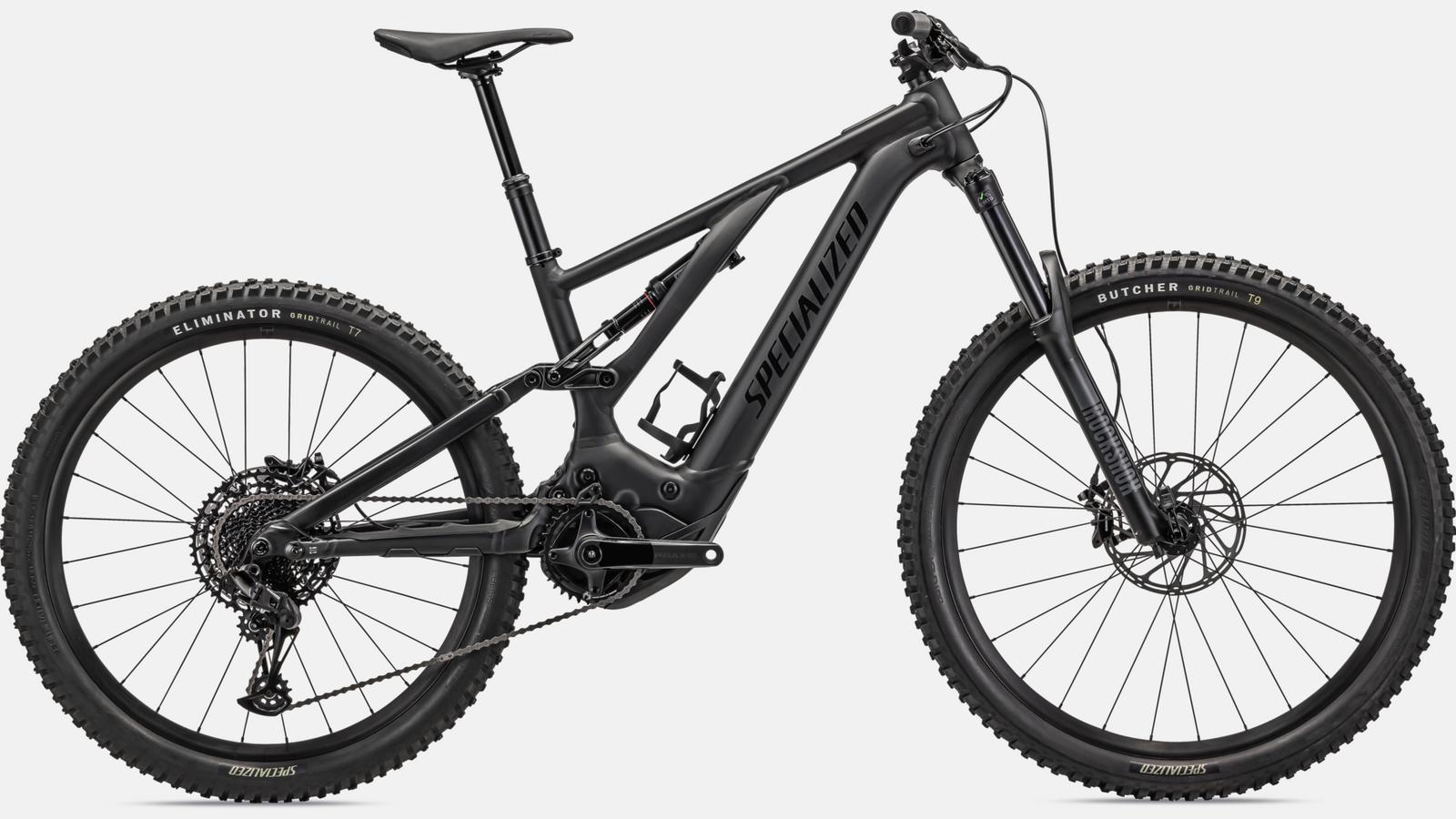
This is an excellent full power and comparatively lightweight e-MTB designed for aggressive trail riding. It features 150mm of travel, a full power motor, and a high-capacity battery on a frame crafted specifically to keep its center of gravity as low as possible, meaning you can climb and descend the most technical trails with both confidence and speed. This is the bike for people who are out on the trails every chance they get and want to ride even farther and longer. If you want to go full out, consider the carbon version of the Turbo Levo priced at 12,749) though there are only limited sizes available.
High-end e-MTB with great handling, powerful motor, easily adjusted geometry, and excellent battery range–with a lofty price tag to go with it.

My first thought when I saw one of these Moterra Neos from Cannondale was that it was a big bike–too big for me (I’m a 5 '5'' woman who rides a size 50 or 51 road bike). Once I wrangled my fear and actually got on the bike, I was pleasantly surprised at how quick, agile, and comfortable it was. I didn’t even crash it when descending (I’m not the best or most confident descender) at faster speeds than I normally ride, which says a lot for its stability. The Moterra has 165mm of travel in the front and 170mm in the back, with a powerful Bosch motor.
A big, burly, long travel e-MTB that feels like a trail bike and handles surprisingly well, even for smaller riders.
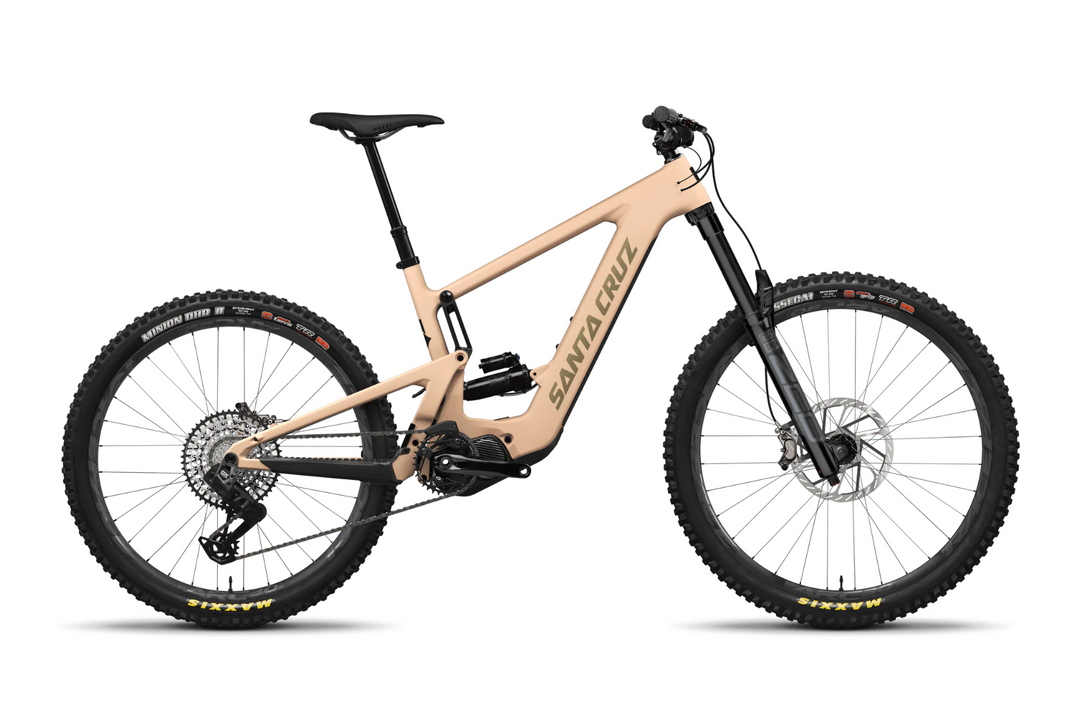
Santa Cruz has been manufacturing Bullits for a long time. This updated, current version features 170mm of travel, a carbon frame, and mixed wheel sizes for exceptional handling while climbing and riding down rough trails. The longest travel ebike the brand makes, the Bullit is designed specifically to combat the restraints of gravity while delivering a natural-feeling ride. The frame, bearings, and wheels come with Santa Cruz’s lifetime warranty.
Long travel e-MTB that climbs and descends rough trails exceptionally well.
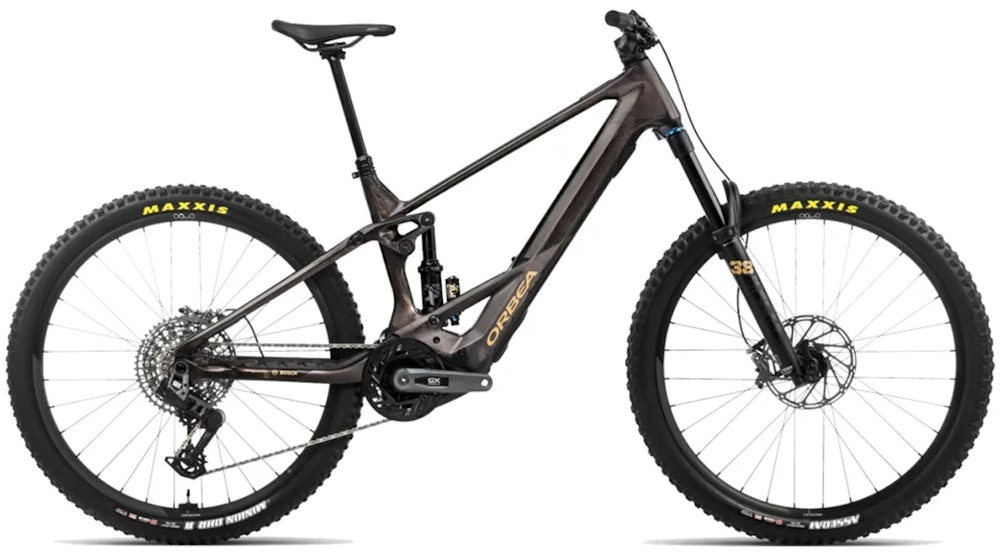
An enduro mountain bike with 160mm of travel in the front and back, excellent grip, and a balanced feel (whether you’re going up or down), the Orbea Wild is one of the easiest to ride mountain bikes. It features Fox Factory suspension and a wireless SRAM GX Eagle drivetrain. Some hefty e-MTBs feel like they’re more in control of the ride than you are, but the Orbea Wild is the exact opposite.
An enduro electric mountain bike that provides an active, high-control riding experience with great balance whether descending or ascending.
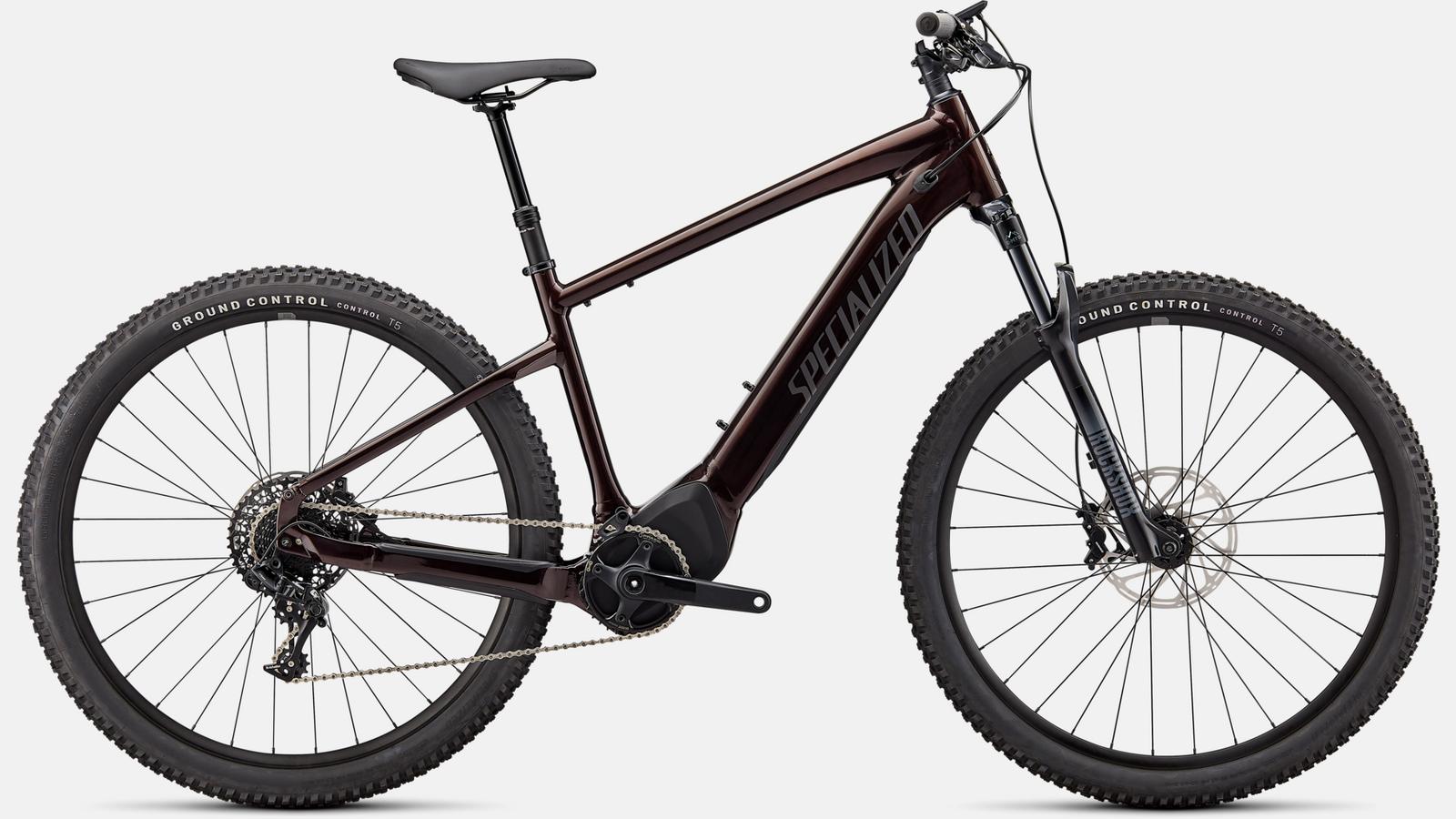
The Tero is a hardtail, all-terrain bike that you can use to get around town, the countryside, or the world. It’s a touring bike, commuter, cargo hauler, and competent trail bike all-in-one. Behrens uses one as his commuter bike and calls it, “an excellent, all-around utility bike.” It is equipped with a Rockshox front fork with 110mm of travel, hydraulic disc brakes, and space for a rack and storage. The bike’s Turbo technology means an electronic system that not only provides power with a natural feel, but also anti-theft functions, training trips, and more. The long range means you can cover up to 75 miles or 5.5 hours on a single charge in eco-mode. If you ride in a higher mode setting, your range will obviously be shorter—Behrens says he gets about three and half, 10 mile commutes out of a single charge in his high setting. For alternatives, be sure to check out our guide to the best electric commuter bikes.
An all-terrain, extremely versatile, hardtail electric bike that you can use as a commuter, touring bike, cargo hauler, trail bike, and everything in between.
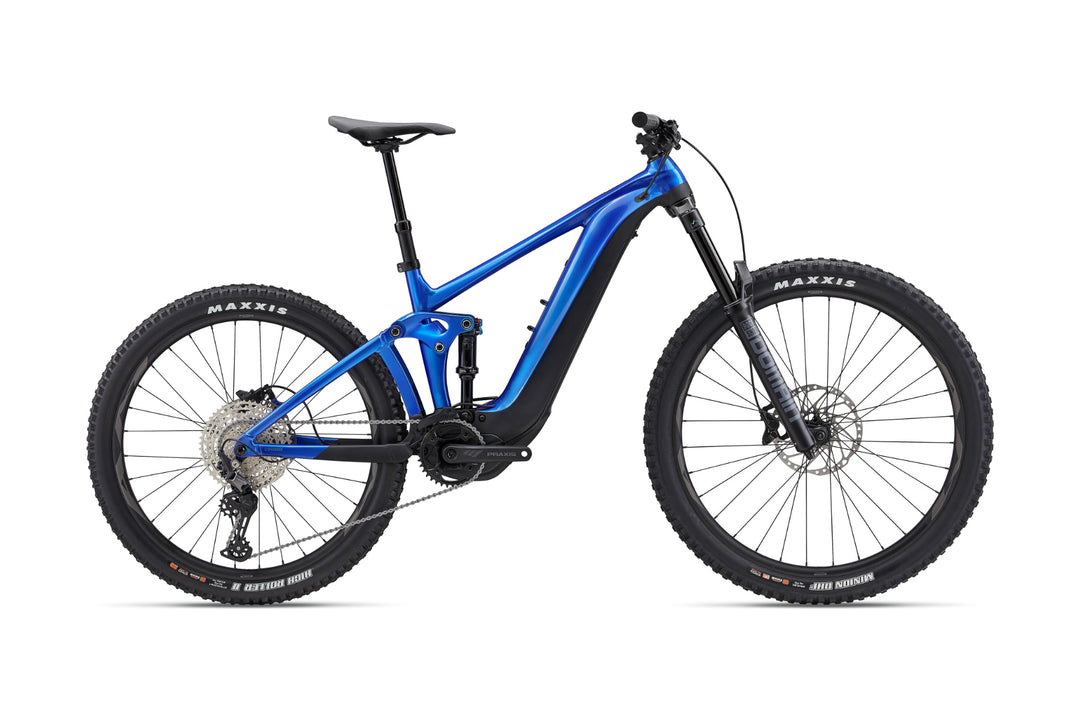
With 160mm of rear travel, 170mm of front travel, five power settings, and excellent traction, the Giant Reign easily takes you anywhere you need to go. This is a burly, stable bike that’s great for all kinds of terrain, while the 800wh battery capacity means you have more time to get everything done and ride farther.
Sturdy, capable, and comfortable electric mountain bike with a large capacity battery.
In addition to testing most of these electric mountain bikes myself, I also consulted online reviews and eMTB forums. I spoke to bike shop professionals, including Sam Behrens at Specialized LIC in New York, to determine the best electric mountain bikes suitable for a wide range of riders. I took into consideration weight, motor, battery size, comfort, stability, and overall “feel” of riding a particular bike.
As most people know, an electric bike is a bike with a motor powered by a battery (but do check our guide to, “What is an electric bike?” for a more detailed explanation). While there are different classes of electric bikes, all the mountain bikes in this guide are Class 1, meaning they don’t have a throttle and only output power when you’re pedaling. Here’s what you should be looking at:
“Where you plan to ride and what kind of riding you like to do will help you decide what kind of bike you need,” says Sam Behrens, Store Manager at Specialized Long Island City in Queens, New York. If, for instance, you plan to use your bike for hauling things with a trailer, you’ll need a motor with a higher torque setting, providing the power you need to get started from a stationary position.
Behrens suggests buying the most bike you can afford (even if it’s technically more bike than you need). “E-bikes in general have an excellent resale value so, after riding one for a year and learning firsthand what you like and don’t like, as well as what your needs really are, you can sell that particular bike and purchase another if you want,” he explains. So while some of the best cheap electric bikes are certainly worth your time, do consider paying a little extra for something truly outstanding.
When helping his customers decide which bike to buy, Behrens says that he balances the differences between components and models on paper with actual “perceived difference.” “For example,” he says, “If you’re a beginner or intermediate rider you probably won’t notice tons of difference between weights of bikes, especially when it comes to electric ones.”
Higher powered motors mean your battery will run out faster, or you’ll need a battery with a larger capacity. While larger batteries generally last longer, remember that the bigger they get, the more they’ll weigh. For most people, batteries in the 700-750wh range are sufficient and provide enough power to get you through a multi-hour ride.
Electric bikes come in two power levels: Full power or mid power. “I think of full power electric bikes as replacements for cars and mid power ones as magic bikes,” says Behrens. By magic, he means bikes that make you think, “Oh wow, when did I get so fast?” Rather than, “Oh, this is obviously a motor punching me along.”
Also, consider where the motor is mounted on the bike. A frame or mid-mount (in the bottom bracket) makes the bike easier to control, positioning the center of gravity lower and more centrally, as opposed to putting the motor in a rear hub. Bikes with mid-drive motors are more expensive because the frame has to be manufactured to fit the motor and battery. Motors can also be positioned in the rear wheel hub, although that tends to make the bike too back heavy, which could cause your front wheel to pull up, especially when you’re trying to climb a steep hill.
Most of the e-MTBs included here are full suspension, meaning they have a front suspension fork and a rear shock (hardtail bikes only have front suspension). If you’re unfamiliar with suspension and travel, suspension works just like the shocks in your car, allowing the bike some give or, as Behrens calls it, squishiness, as you roll over uneven terrain, so you’re not bouncing. Travel, measured in millimeters, is the distance your suspension can move in an up and down direction. Full suspension bikes, in general, are more expensive than hardtails.
The more travel you have, the easier time you’ll have riding difficult trails and steep downhill paths, since you’ll be more comfortable with your wheels spending more time on the ground as opposed to bouncing off of every rock, root, and rut. Look for bikes with travel between 130mm and 170mm.
Electric mountain bikes are heavy, which means a good brake system is essential. All e-MTBs have disc brakes, most of them being hydraulic. The majority also have electronic shifting, both wireless and wired versions, which are infinitely more precise than mechanical versions. Wireless shifting operates via bluetooth connections.
Behrens is a fan of SRAM’s fancy new Eagle electric transmissions. Unlike most others, you can easily replace one component or part of it (the rear derailleur parts are replaceable, for instance) instead of the whole thing.
Like all the best electric bikes, electric mountain bikes require controls on your handlebars to operate the motor, and display important things like how much battery remains, speed, and setting. You can also pair your heart monitor with a wireless system, Behrens mentions. “It can be set up to keep your heart rate in a specified zone, which is excellent for people who have a heart condition and might not otherwise be able to ride,” he says.
Electric mountain bikes are either full power or mid power. E-MTBs that are considered “full power” allow you to do things you probably wouldn’t be able to on a regular bike, like ride farther and/or faster for longer periods of time (or climb steeper inclines) while “mid power” models have lower power outputs that means the power assist they deliver is more subtle. Mid power mountain bikes tend to weigh less, as well.
Electric mountain bikes come equipped with a variety of motors. Both Specialized and Trek manufacture their own, while many other e-MTBs use Bosch Performance Line CX motors that provide 600Wh and 85Nm of torque. You’ll find Yamaha Syncdrive Pro motors on Giant e-MTBs, which feature what the brand calls “Smart Assist mode”–through six different sensors, this determines how much power to use in a particular scenario. Shimano also makes motors, including the EP8 motor, which has a torque of 85Nm.
That torque rating is measured in newton meters (or Nm) and refers to how much the bike helps you along when you’re pushing on the pedals. The higher the torque, the less force you’ll need to put on the pedals while climbing compared to a motor with a lower torque rating.
Also, make sure the motor has a torque sensor, “that measures more than one element,” says Behrens. “They need to sense both cadence and pressure applied.” Without a torque sensor there’s the danger that the motor will interpret a simple spin to readjust your pedal position (say, like when you’re stopped at a light or stop sign) as forward movement and send you out into an intersection.
Most motors have at least three different levels. “The Specialized motors allow you to define each of those levels via the Specialized app,” says Behrens. You can also set the plus and minus buttons to simply increase or decrease the power output by a specified amount every time you push them, e.g., by 10%.
Measured in watt hours (or power over time), a battery’s capacity generally ranges from 320wh up to 1,000wh. How long a particular battery lasts depends on how much power it’s using (how fast you’re going, if you’re climbing or not, etc). Generally, the bigger the battery, the heavier the bike.
Though not as reliable as a traditional, non-electric bike, e-MTBs are very reliable–some would say more so than your car. Bikes are relatively simple machines to begin with and, though the motorized and electronic components of an electric bicycle are a few steps beyond that, they still require little maintenance to remain in good working order for years.
You should expect to pay around $4,000-$5,000 for one on the low end and up to $14,000 on the high end. E-bike prices generally line up with what you’d pay for a comparable “analog bike,” per Behrens. Plus, the cost of the motor is usually an additional $800-$1,200. “The bike industry considers e-bikes the future,” he adds, which means they’re cognizant and focused on keeping the cost of them in line with what consumers pay for non-electric models.
Electric mountain bikes, as well as the best fat tire electric bikes, perform exceptionally well on trails. You can generally ride longer trails for more time than on a regular mountain bike. You’ll also, in most cases, be able to tackle more technical trails than you would on a traditional bike, and at a faster speed.
E-bikes are heavier and capable of going faster than regular bicycles. This means they have the potential to cause problems on multi-use trails, like crashes that could result in worse injuries for those involved, especially in areas where people also hike and run. In some areas, people are concerned that electric mountain bikes cause more wear and tear on natural areas.
“With great power comes great responsibility,” says Behrens. It’s important to remember that, especially when navigating multi-use trails, as well as those where there will also be non-electric mountain bike riders.
The information presented here is created by TIME Stamped and overseen by TIME editorial staff. To learn more, see our About Us page.


